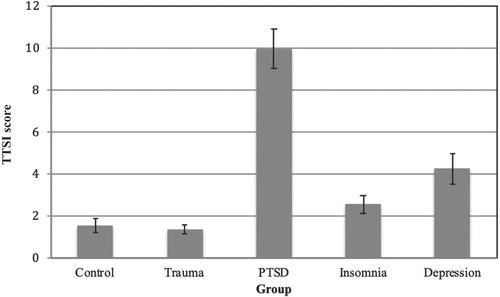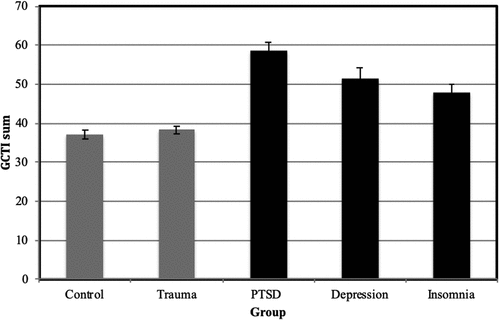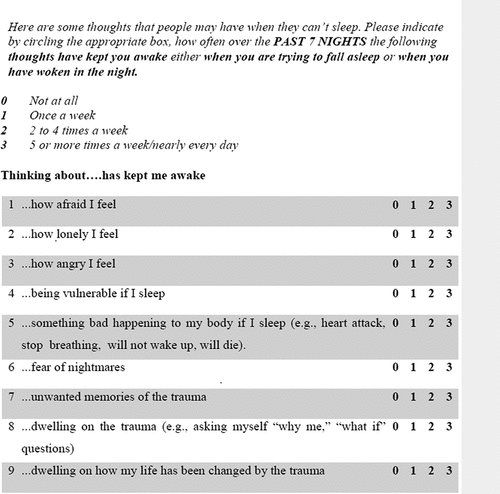Figures & data
Table 1. Demographic and trauma information for each group.
Table 2. Descriptive statistics for each group, and test-statistics for group comparisons. Group differences are indicated in superscript (e.g. A, B, C,), groups sharing the same letter do not differ.
Table 3. Two factor solution with Oblimin rotation.
Figure 1. Mean Trauma Thoughts before Sleep Inventory (TTSI) scores and standard error bars for each group (N = 285).

Figure 2. Mean total Glasgow Content of Thoughts Inventory (GCTI) score with standard error bars for each group (N = 285). Clinical groups are indicated in black.

Table 4. Logistics regression results; the impact of trauma-related (TTSI) and insomnia-related (GCTI) thoughts on poor sleep (PSQI).

